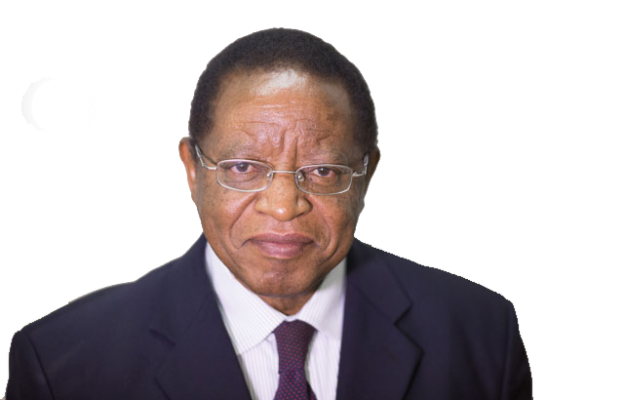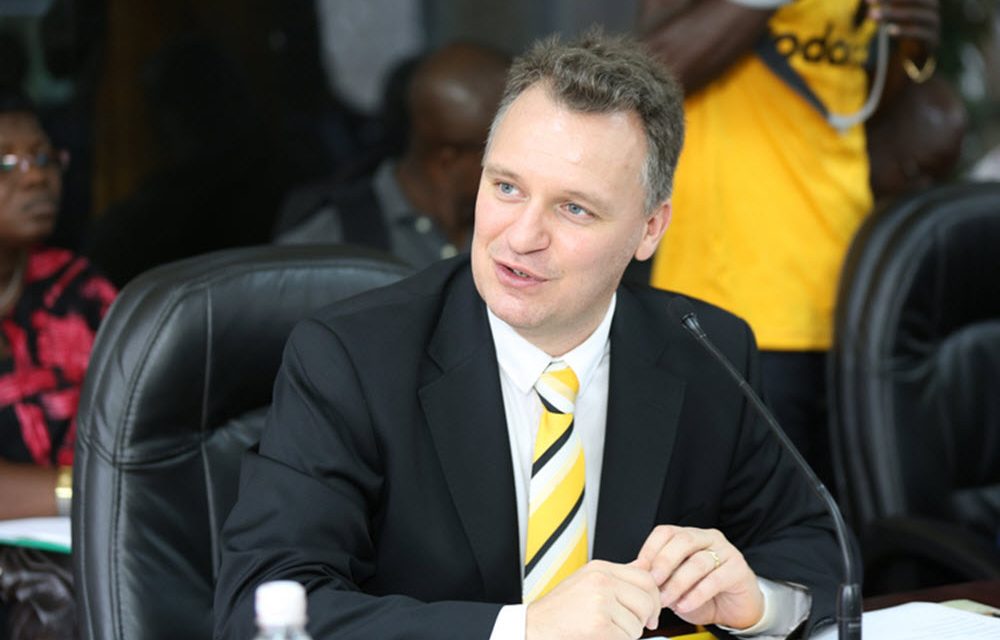Dr. Ezra Suruma recently wrote a commentary highlighting how neocolonial laws and tendencies at the Bank of Uganda (BoU) cannot allow a Ugandan to open and own a bank.
Suruma (pictured), the former Finance Minister and Deputy Governor, BoU said one of the most blatant aims of new colonialism (neocolonialism) is to ensure that Africans are denied access and control of capital.
“The evidence is overwhelming. The law governing the Bank of Uganda was scrapped. A new one was written. The main change was to make the Bank of Uganda independent of the Ministry of finance in particular and of government in general,” Suruma said, adding: “That is why BOU can close domestic banks as if they are private property without bothering what parliament or any other branch of government thinks. They have successfully ensured that foreign banks (read colonial banks) dominance grows and indigenous banks are harassed and closed.”
He added that the law governing the supervision of banks was also rewritten in 2004 so as to strengthen the powers of BOU in their supervision, making it impossible for Ugandans to start a bank by increasing the capital needed beyond their means.
“You need Shs25 billion to start a commercial bank! Even those who had started earlier were made to sell to foreigners as the minimum capital required kept rising. For example, Kigezi Bank of Commerce which we had started to help in developing Kigezi area struggled to remain open when the minimum capital required was increased from 2 billion to Shs5 billion,” he said.
He added: “It is clear that no Ugandan can open a bank now. The bank of Uganda has made sure that that no longer happens. Moreover, even the few avenues that we tried to open for Ugandans such as saccos are being closed. The threat to our future has never been greater than it is today. The ideology that foreign capital should be given every privilege while African investment is persecuted and treated with contempt is before our eyes.”
Against the above background, Business Focus looks at Uganda’s banking sector and the number of banks that are owned by Ugandans.
It is important to note that a strong banking sector plays a crucial role in the economic development of the country. Analysts say local banks are even more important in the growth of an economy.
If the economy is dominated by foreign banks, some laws like capping interest rates like it was done in Kenya in 2016 may not be applicable for you (the host economy) will be dancing to their tunes.
Our research shows that in a market of 26 banks (including newly licensed Afriland First Bank Uganda Limited and Opportunity Bank Uganda Limited), only two banks can be said to be truly owned by Ugandans.
However, no single person or family has a controlling stake in one bank.
The two banks are Centenary and Housing Finance.
Centenary Bank is largely owned by the Roman Catholic Dioceses of Uganda who control 38.5% shareholding, followed by the Uganda Roman Catholic Secretariat at 31.3% and Stitching Hivos-Triodos Fonds at 18.3%.
The International Solidarity for Development and Investment based in France owns 11.6% shares in Centenary bank while four Ugandan individuals own 0.3% in the bank.
Headed by Fabian Kasi as Managing Director, Centenary is one of the top banks in Uganda. In 2018, Centenary bank overtook dfcu bank as Uganda’s 2nd most profitable bank after posting a net profit of Shs107.6bn, up from Shs100.27bn in 2017.
Centenary Bank’s assets increased by 17.4% to Shs3.17 trillion in 2018, up from Shs2.7 trillion reported a year earlier. With 11.31% industry market share, Centenary is Uganda’s second largest bank by assets. This means Centenary is one of the systemically important banks. The others are Stanbic, dfcu and Standard Chartered Bank.
A systemically important bank is one whose failure might trigger a financial crisis. They are colloquially referred to as “too big to fail”.
Housing Finance Bank is the other bank that is locally owned.
It is 50% owned by the National Social Security Fund (Uganda).
The government of Uganda, through the Ministry of Finance, Planning and Economic Development (Uganda), owns 49.18 % in Housing Finance.
The remaining 0.82% is owned by the National Housing and Construction Company, a parastatal company jointly owned by the government of Uganda (51%) and the government of Libya (49%).
Although with indigenous roots, dfcu that took over Crane Bank is now foreign owned.
dfcu is largely owned by Arise B.V. – 58.70%, SCB Mauritius A/C Investment Fund for Developing Countries – 9.97%, National Social Security Fund (Uganda)- 7.46%, Kimberlite Frontier Africa Naster Fund, L.P.-RCKM – 7.35%, SSB Russell Investment Company Plc Fund NAS5-1.93%, National Social Security Fund-Pinebridge – 1.40%, Vanderbilt University – 0.98%, SSB-Conrad N Hilton Foundation -0.97%, Jubilee Investment Company Limited – 0.76%, Bank of Uganda Staff Retirement Benefit Scheme AIG -0.60% and others- 9.89%.
Finance Trust Bank that was a few years ago largely locally owned is now in the hands of foreigners.
As of May 2018, Uganda Women’s Trust (Uganda) own 20.10% in Finance Trust Bank while Oikocredit Ecumenical Development Cooperative Society (Netherlands) owns 19.60% of the bank.
Progression Eastern African Micro Finance Equity Fund (Mauritius) has 18.30% stake in the bank, RIF North 1 (Mauritius)-18.30%, Investment & Partner Afrique Entrepreneurs (Mauritius)-14.20% and Ugandan Women Entrepreneurs (Uganda)-9.50%. This means Ugandans have 29.6% stake in Finance Trust Bank.
Kenya beats Uganda
It is also worth noting that neighbouring Kenya has more banks operating in Uganda than the host country; ABC, Diamond Trust Bank, KCB, Equity, NC Bank and Commercial Bank of Africa are all from Kenya.
It is important to note that although foreign owned banks pay taxes and employ many Ugandans, they are at liberty to repatriate the profits to their mother countries especially after paying the 30% corporation tax.
Other foreign owned banks saving the Ugandan economy include Ecobank, Orient, Guaranty Trust Bank, Citibank, Cairo International Bank (CIB), Bank of Baroda, Bank of India, Uganda United Bank for Africa, Stanbic Bank, Standard Chartered, Tropical Bank, Exim Bank and Absa.
History of Uganda’s Failed Banks
On January27, 2017, the Bank of Uganda (BoU) announced that dfcu had acquired Crane Bank. dfcu eventual acquisition of Crane Bank followed the latter’s takeover by BoU on October 20, 2016 after allegedly becoming “a significantly undercapitalized institution.”
Prior to its takeover in October 2016, Crane bank had enjoyed 21 years of uninterrupted and tremendous growth. It was not only the leading indigenous bank, but it was also among the systemically important banks.
However, Crane Bank wasn’t the first indigenous bank to collapse under controversial circumstances.
In 2012, BoU took over the management of National Bank of Commerce, also known as Kigezi Bank.
Its assets and liabilities were sold to the defunct Crane Bank.
Importantly, in 1990s and early 2000, Uganda’s banking crisis saw many indigenous banks become insolvent and collapse.
A number of banks were taken over by BoU before they were eventually either sold to the foreign banks or liquidated.
Assets of Co-operative Bank that was mainly for farmers were sold to Standard Bank, Greenland Bank was liquidated; Teefe Bank and Gold Trust Bank were closed.
International Credit Bank was also closed. Uganda Commercial Bank was sold to Stanbic while Barclays Bank acquired Nile Bank Uganda Limited in 2007. Financial indiscipline and misstatement have been cited as key factors for the above failed banks.
However, many bank owners have refuted the claims, with some taking BoU to Court.







Museveni has left nothing for Ugandans, he has made sure that the country looses everything to foreigners!! When his regime collapses Ugandans will have to boycott and Nationalise all these Assets back to the hands of ugandans